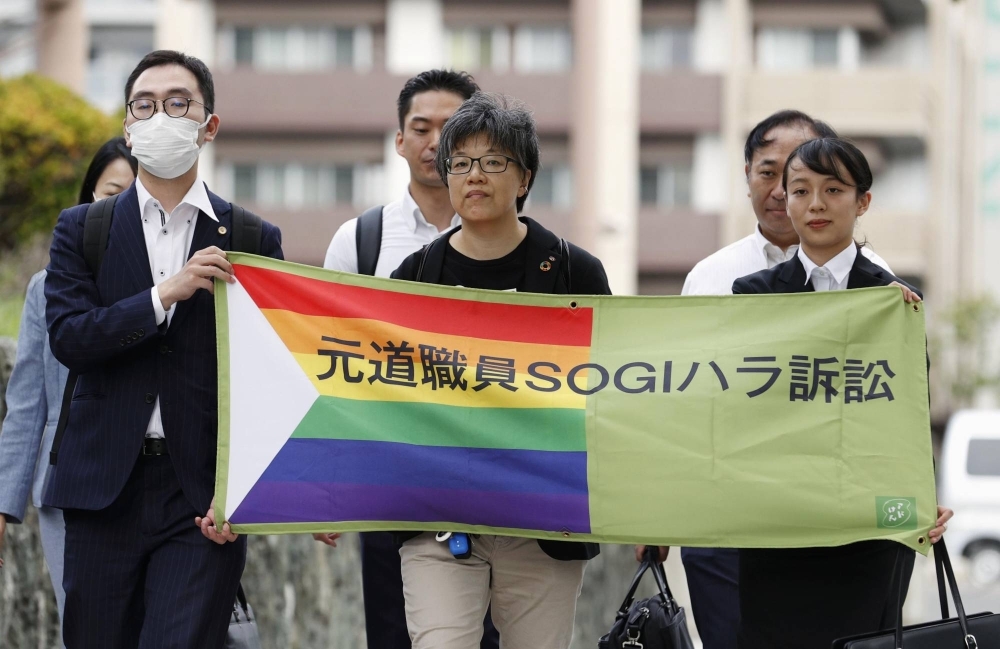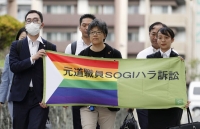The Sapporo District Court ruled on Monday that a person in a same-sex relationship is not entitled to spousal benefits provided to a person in marriage or in a common-law marital relationship, rejecting a damages claim brought by a woman against her former employer, the Hokkaido Prefectural Government.
The court denied Kaoru Sasaki's claim for the ¥4.7 million ($32,000) she sought in spousal benefits from the Hokkaido government. According to her lawyers, the lawsuit is Japan's first centered on the family relationship of same-sex partners.
Sasaki's lawyers argued that the ruling contradicts a recent trend seen regarding other local governments in Japan, such as the Tokyo Metropolitan Government, which recognizes same-sex partners as spouses despite Japan's lack of legal recognition for same-sex partnerships.
Sasaki, 54, who had argued that the denial of benefits violated the guarantee of equality under the Constitution, criticized the court's decision as "a formality for form's sake." She also stated that she would not appeal the ruling, explaining, "I have fought it out."
According to the complaint, Sasaki applied for spousal benefits and an increase in special benefits for employees working in cold regions in July 2018 and April 2019 when she was working for the prefectural government, utilizing the Sapporo city government's program recognizing same-sex partnerships.
However, the Hokkaido government and a mutual aid association for prefectural employees rejected the applications, saying such benefits are limited to heterosexual couples who are married or are in a de facto marital relationship.
Sasaki, who left work in June 2019 and filed the lawsuit in June 2021, called their response "discrimination based on sexual orientation, which is beyond a person's control."
She said she was entitled to receive the benefits, as she was in a de facto marital relationship with her partner.
In handing down the ruling, presiding Judge Koichi Migita pointed out that the country's civil law currently restricts marriage to a union between a man and a woman.
While Hokkaido's ordinance allows spousal benefits for a married person or someone in a common-law marriage, Migita clarified that Sasaki's same-sex partner does not fall under the latter category either.
"There was no illegality or fault" in the refusals of the benefits by the defendants, Migita said.
In the absence of legal recognition of same-sex partnerships in Japan, LGBTQ people in the country are denied the benefits enjoyed by heterosexual couples, such as medical visitation rights and the ability to make medical decisions for their partners or co-parenting rights and spousal income tax deductions.
However, some local governments have taken steps to recognize same-sex partnerships, such as issuing certificates, which are not legally binding but help same-sex couples apply for municipal housing, among other benefits.
According to the activist group Nijiiro Diversity, more than 320 municipalities in the country had introduced such certificates as of the end of June this year.
A series of lawsuits have also been filed against the government by people in same-sex marriages, claiming that not approving their union violates the Constitution.
Starting with a landmark verdict by the Sapporo District Court in March 2021, several courts have ruled that the country's lack of legal recognition of same-sex marriage is unconstitutional or in a "state of unconstitutionality," adding pressure on the state to do more to protect the rights of sexual minorities.




